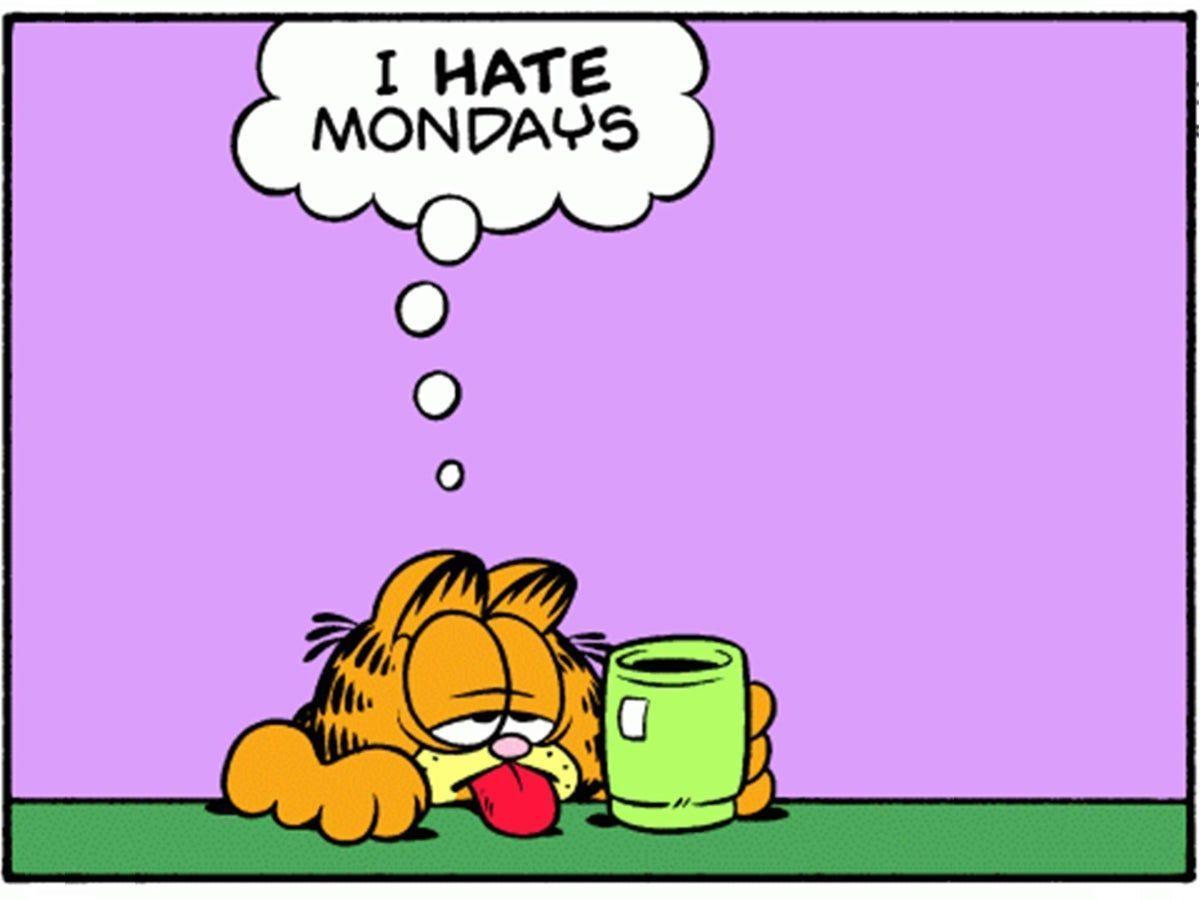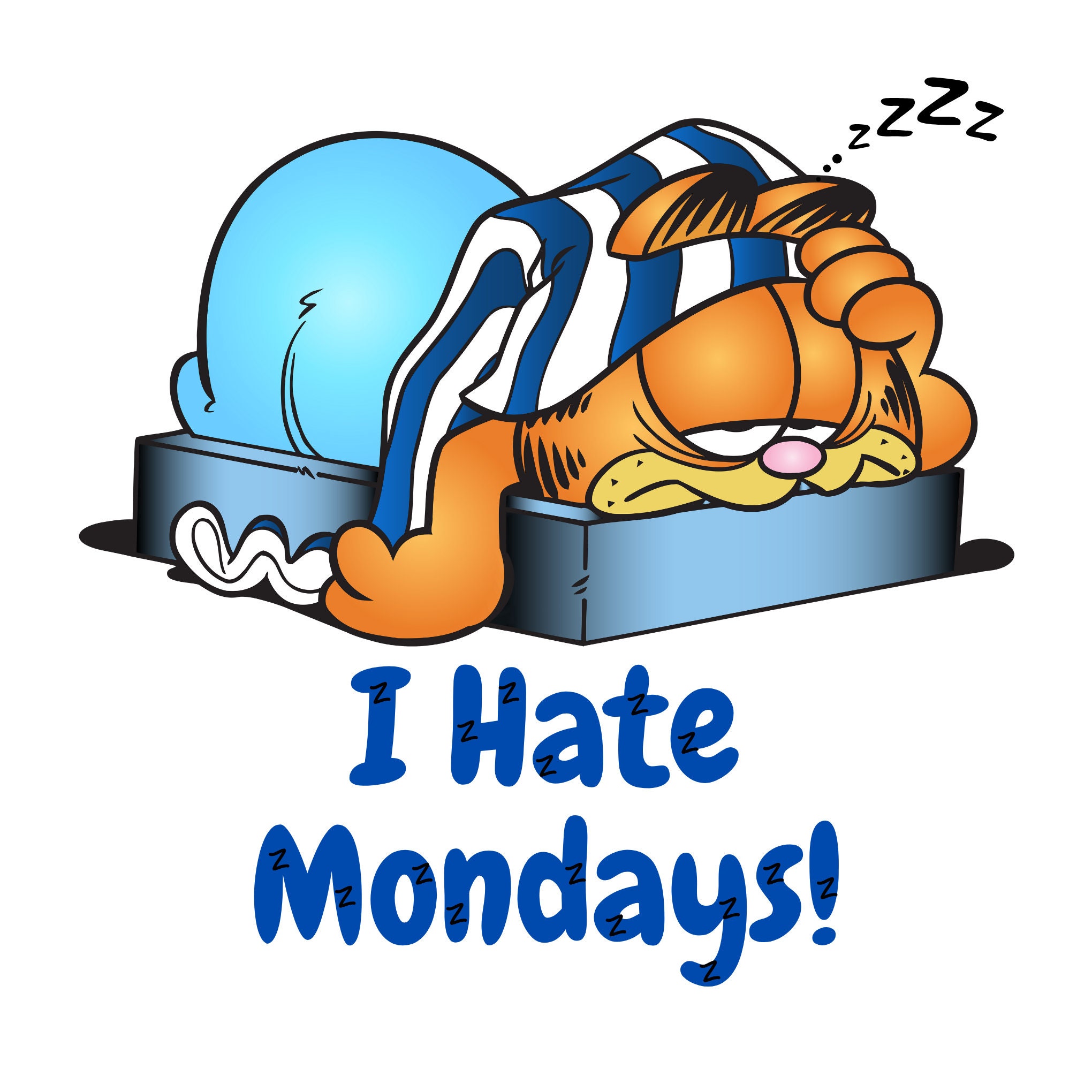Monday has long been the nemesis of many workers around the globe. The phrase "I hate Monday" has become a universal expression of dissatisfaction with the start of the workweek. It's not just about the day itself but rather the emotions and routines associated with it. Whether you're returning to work after a weekend or simply dreading the Monday blues, this sentiment resonates with millions of people worldwide.
The feeling of dread that comes with the start of the week is not new. Many studies have explored why people feel this way, and it's not just about laziness or procrastination. The psychological and emotional toll of Mondays can affect productivity and overall well-being. Understanding the reasons behind the "I hate Monday" phenomenon can help individuals and organizations create better work-life balance strategies.
In this article, we will dive deep into the reasons why people often dislike Mondays and explore practical solutions to combat these negative feelings. Whether you're an employee, manager, or someone looking to improve your mental health, this guide will provide valuable insights to help you embrace the start of the week more positively.
Read also:Bishop Allen A Journey Through Music Creativity And Influence
Table of Contents
- The Origins of "I Hate Monday"
- Psychological Reasons Behind the Monday Blues
- Impact of Mondays on Productivity
- Workplace Culture and Monday Blues
- Mondays and Mental Health
- Breaking the Monday Blues Habit
- Practical Solutions for a Better Monday
- Statistics on Monday Blues
- Famous Quotes About Mondays
- Conclusion: Turning Mondays Around
The Origins of "I Hate Monday"
The phrase "I hate Monday" has become so ingrained in popular culture that it's easy to forget its origins. The sentiment likely dates back to the Industrial Revolution when the concept of a five-day workweek became standard. Before this, people worked six or even seven days a week, so the idea of having a weekend was a luxury. As weekends became more common, Mondays naturally became the day when people had to return to the grind, leading to dissatisfaction.
This dissatisfaction was further popularized by media and pop culture. One of the most famous references to the Monday blues is the 1981 hit song "Monday" by the British band The Cure. The lyrics capture the universal feeling of dread that many experience at the start of the week. Since then, countless memes, jokes, and social media posts have perpetuated the idea that Mondays are the worst day of the week.
Why Mondays Are Universally Disliked
There are several reasons why Mondays are universally disliked. One major factor is the disruption of sleep patterns over the weekend. Many people stay up later on Friday and Saturday nights, only to have to wake up early on Monday morning. This abrupt change in routine can lead to sleep deprivation and grogginess, making the start of the week particularly challenging.
- Disruption of sleep patterns
- Increased stress levels
- Lower motivation
- Transition from leisure to work mode
Psychological Reasons Behind the Monday Blues
The Monday blues are not just a joke or a passing sentiment; they are rooted in psychology. Studies have shown that the transition from the weekend to the workweek can have a significant impact on mental health. Many people experience a drop in mood and energy levels on Mondays, which can affect their productivity and overall well-being.
One psychological theory suggests that the Monday blues are linked to the concept of "cognitive dissonance." This occurs when there is a mismatch between what people want (a relaxing weekend) and what they have to do (return to work). This dissonance can lead to feelings of frustration and dissatisfaction, making Mondays particularly difficult to handle.
Common Psychological Effects of Mondays
Here are some common psychological effects that people experience on Mondays:
Read also:The Latest Scoop Uncovering Helenas Current Whereabouts
- Increased anxiety and stress
- Decreased motivation and focus
- Feelings of burnout or exhaustion
- Difficulty transitioning from leisure to work mode
Impact of Mondays on Productivity
The Monday blues can have a direct impact on productivity. Studies have shown that employees tend to be less productive on Mondays compared to other days of the week. This decrease in productivity is often attributed to the mental and emotional toll of transitioning back to work mode after a weekend of relaxation.
One study conducted by the American Psychological Association found that employees reported higher levels of stress and lower levels of engagement on Mondays. This can lead to a decrease in performance and an increase in errors or mistakes. Organizations that recognize this trend can take steps to mitigate its effects and improve overall productivity.
Strategies to Boost Productivity on Mondays
Here are some strategies that individuals and organizations can use to boost productivity on Mondays:
- Start the week with a clear plan or to-do list
- Set realistic goals for the day
- Take short breaks to recharge
- Encourage team collaboration and communication
Workplace Culture and Monday Blues
The way a workplace is structured can significantly impact how employees feel about Mondays. Companies that prioritize work-life balance and employee well-being tend to see fewer instances of the Monday blues. On the other hand, workplaces with rigid schedules and high stress levels can exacerbate these negative feelings.
Some organizations have implemented flexible work arrangements, such as remote work or compressed workweeks, to help employees manage the transition from the weekend to the workweek. These arrangements can reduce stress levels and improve overall job satisfaction, leading to a more positive start to the week.
Examples of Companies Addressing the Monday Blues
Several companies have taken innovative approaches to address the Monday blues. For example:
- Google offers flexible work hours and encourages employees to take breaks throughout the day.
- Netflix emphasizes a culture of freedom and responsibility, allowing employees to set their own schedules.
- Amazon has introduced "alternative work arrangements" to help employees balance their personal and professional lives.
Mondays and Mental Health
The Monday blues can have a significant impact on mental health. The stress and anxiety associated with the start of the week can lead to feelings of burnout, depression, and even physical symptoms such as headaches or stomachaches. It's important for individuals to recognize these signs and take steps to address them before they become more serious.
Mindfulness practices, such as meditation or yoga, can help reduce stress levels and improve mental well-being. Additionally, maintaining a consistent sleep schedule and engaging in physical activity can help individuals transition more smoothly from the weekend to the workweek.
Tips for Improving Mental Health on Mondays
Here are some tips for improving mental health on Mondays:
- Practice mindfulness or meditation
- Engage in physical activity
- Set realistic expectations for the day
- Connect with colleagues or friends for support
Breaking the Monday Blues Habit
Breaking the habit of dreading Mondays requires a conscious effort to change one's mindset and routines. By adopting new habits and strategies, individuals can transform their perception of Mondays and create a more positive start to the week.
One effective strategy is to reframe the way you think about Mondays. Instead of viewing them as the end of the weekend, try to see them as an opportunity to start fresh and achieve new goals. Setting small, achievable goals for the day can help build momentum and improve motivation.
Steps to Break the Monday Blues Habit
Here are some steps individuals can take to break the Monday blues habit:
- Reframe your mindset about Mondays
- Set small, achievable goals for the day
- Establish a consistent routine
- Practice gratitude and focus on positive aspects
Practical Solutions for a Better Monday
There are several practical solutions that individuals and organizations can implement to create a better Monday experience. These solutions range from simple lifestyle changes to more comprehensive workplace policies.
For individuals, simple changes such as setting a consistent sleep schedule, preparing for the week ahead on Sunday evening, and engaging in enjoyable activities on Monday can make a significant difference. Organizations can also play a role by offering flexible work arrangements, promoting work-life balance, and fostering a positive workplace culture.
Top Solutions for a Better Monday
Here are some top solutions for a better Monday:
- Set a consistent sleep schedule
- Prepare for the week ahead on Sunday evening
- Engage in enjoyable activities on Monday
- Offer flexible work arrangements
- Promote work-life balance
Statistics on Monday Blues
Several studies have explored the prevalence and impact of the Monday blues. According to a survey conducted by the Mental Health Foundation, 46% of workers reported feeling more stressed on Mondays compared to other days of the week. Another study by the American Psychological Association found that employees were less engaged and more likely to make mistakes on Mondays.
These statistics highlight the importance of addressing the Monday blues and improving workplace well-being. Organizations that prioritize employee mental health and work-life balance are more likely to see positive results in terms of productivity and job satisfaction.
Famous Quotes About Mondays
Throughout history, many famous individuals have expressed their thoughts and feelings about Mondays. Here are some of the most memorable quotes:
- "Monday is an awful way to spend one-seventh of your life." – Charles M. Schulz
- "Monday always comes whether you want it or not." – Unknown
- "Monday morning feels like a punishment for surviving the weekend." – Unknown
Conclusion: Turning Mondays Around
In conclusion, the "I hate Monday" sentiment is more than just a saying; it's a reflection of the psychological and emotional challenges that many people face at the start of the week. By understanding the reasons behind the Monday blues and implementing practical solutions, individuals and organizations can create a more positive and productive start to the week.
We encourage readers to take action by adopting new habits, reframing their mindset, and advocating for workplace policies that promote well-being. By working together, we can turn Mondays into a day of opportunity and growth rather than dread and frustration.
Feel free to share your thoughts and experiences in the comments below. If you found this article helpful, don't forget to share it with your friends and colleagues. For more insights on improving your work-life balance, check out our other articles on mental health and productivity.

